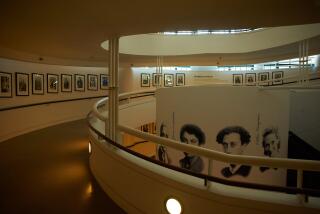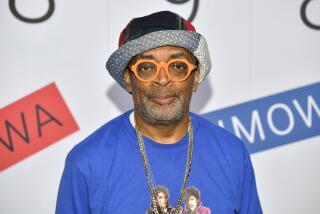Japanese soldiers shown in a new light
- Share via
BEIJING — College student Chen Lin heard the buzz about the new film depicting the horrors of Japan’s World War II-era massacre of 300,000 Chinese civilians in Nanjing.
Friends told her that the images in the Chinese-distributed drama, “City of Life and Death,” would be brutal -- mass rapes, point-blank executions, public beheadings and victims buried alive.
But perhaps as disturbing to many filmgoers: Director Lu Chuan portrays Japanese soldiers as real people, with human flaws, some deeply conflicted over the murder and mayhem they inflict.
“My friends said go see it,” Chen said. “It tells the same painful story, but from a different point of view.”
Since its April release, a public uproar has ensued, with some viewers walking out, a few questioning the theater manager’s patriotism.
Distributed by the state-run China Film Group and approved by the Communist Party -- after many of its most violent scenes were excised by censors -- the film has nonetheless drawn the ire of many bloggers. Lu has even received death threats.
Accustomed to Japanese soldiers being demonized as mindless murderers, many were unprepared for a more balanced rendering of human frailty.
Called “Nanjing Nanjing” here, the black-and-white film plays like a 1930s newsreel as it details the carnage through the eyes of characters, some fictional and some based on true accounts.
Along with the terrified victims, there is an ordinary Japanese soldier so haunted by the brutality that he takes his own life.
China remains irate that Japanese politicians have neither apologized for nor admitted the scope of the killings, while Japanese historians have erased the episode from their nation’s textbooks.
Many aren’t buying the film characters’ remorse.
“I have never met a Japanese person that has found their conscience like those in the movie,” one blogger vented. “Lu Chuan, 300,000 Nanjing souls will not forgive you, you modern Chinese traitor, for covering up the Nanjing massacre for the Japanese!”
In Nanjing, home to many elderly survivors of the 1937 attack, the response has been particularly vitriolic.
Zhao Zhengang, 87, said the real Japanese soldiers showed no such mercy as that depicted in the film.
“Such handling is not only inconsistent with history, but also shows an attitude of forgiving them,” she told the news media.
Nanjing native Lijia Zhang, a writer, said that many here believed the film glorified Japanese soldiers but that she had mixed emotions.
“I understand the hatred. The atrocities were incredibly brutal, but the Japanese were still human,” she said. “But for most Chinese what happened in Nanjing is still a running sore. This victim mentality is a form of narrow nationalism. It’s a pity.”
In 2006, director Clint Eastwood received muted criticism from some U.S. Republicans for his sympathetic view of Japanese soldiers in “Letters From Iwo Jima,” which was lauded by film critics in Japan.
But unlike in China, there was no public outrage in the U.S.
At the same time, some Chinese viewers of “City of Life and Death” have been impressed.
“I thought it was very objective,” said Chen, 22. “Governments declare wars, ordinary people fight them.”
Li Ang, a Beijing theater general manager, said: “Whether you like it or not, the film shows history as it was, not just the Chinese side. It didn’t promote the Japanese. It merely related untold truths.”
Some strong critics of Japan agree that there is room for Lu’s vision.
“This is an artistic work, so we cannot expect every detail to be true,” said Wang Jinsi, a member of China’s War of Resistance Against Japan Assn. “China is now a much more pluralistic society. We should allow for different voices.”
Lu has told reporters that many of the film’s Japanese actors who had initially disagreed about the scope of the Imperial Army’s crimes in Nanjing later found the filming difficult.
“They cried and asked to leave because the atrocities in the massacre, like raping and killing, drove them crazy,” he said. “I think their pain and confusion were just what I wanted to present in the movie.”
The film has yet to be screened in Japanese theaters. Lu has said he would offer it free to distributors.
For him, no criticism could match the four-year project’s emotional toll. “My heart was in pain and darkness,” he told the state-run New China News Agency. “It was like in hell.”
--
Eliot Gao of The Times’ Beijing Bureau and Ju-min Park of the Seoul Bureau contributed to this report.
More to Read
Only good movies
Get the Indie Focus newsletter, Mark Olsen's weekly guide to the world of cinema.
You may occasionally receive promotional content from the Los Angeles Times.








